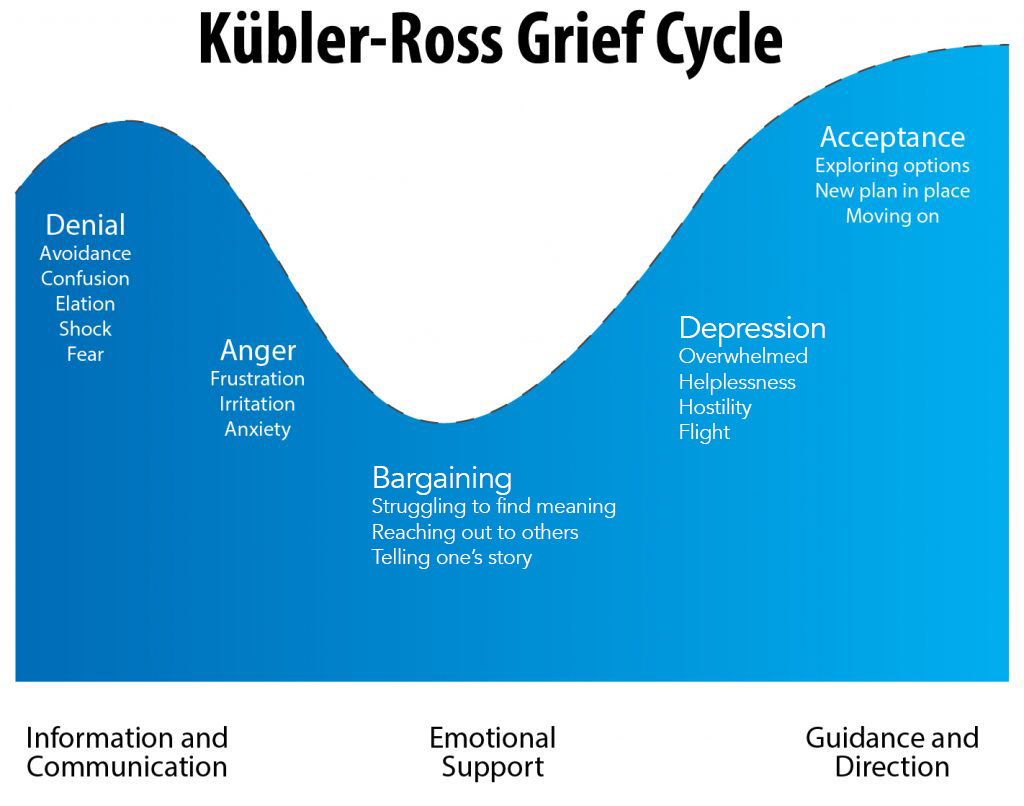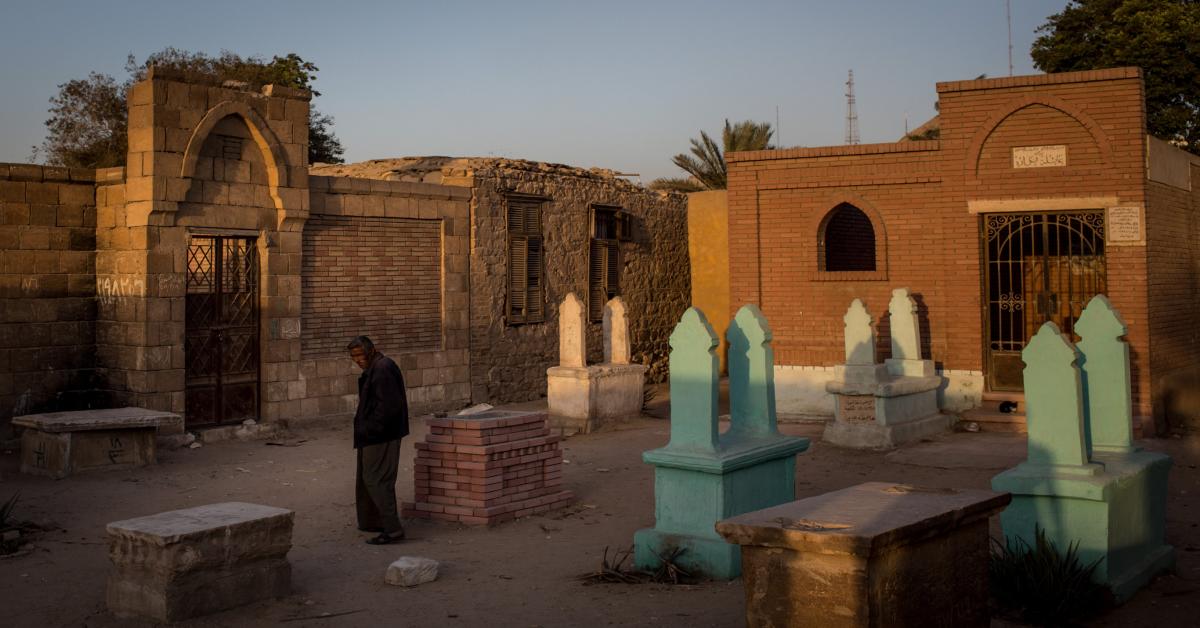“Grief, I’ve learned, is really just love. It’s all the love you want to give, but cannot. All that unspent love gathers up in the corners of your eyes, the lump in your throat, and in that hollow part of your chest. Grief is just love with no place to go,” explains American writer Jamie Anderson.
The holy month of Ramadan is nothing short of special – the conviviality of family gatherings and the comfort of being surrounded by loved ones all around evoke a sense of belonging.
Loss is often incomprehensible, even to the wisest of all. It’s alienating and lonely, heart wrenching and physically tiring. What’s true is – no one will ever be the same after loss. It shakes your understanding of life, but also deepenes it.
“In Ramadan and holidays generally, people tend to experience nostalgic feelings. It is very common for people to re-experience sadness even if they have overcome the loss. Grief is a never ending emotional experience, and accepting someone’s loss, doesn’t necessarily mean the end of grief,” highlights Farida El Ghandour, Clinical Psychologist and Addiction Counselor at Exist Counseling Center and Heal Counseling Center.
As the month approaches, it can often be an especially difficult time for the people who house grief.
Holidays and special events are usually a big source of tiggers to those who have lost loved ones, El Ghandour explains.
Ramadan is filled with many rituals and gatherings that could often be constant reminders of the people lost – their empty chairs, their memories, the food they loved, and the habits they fostered.
“Mama loved putting up Ramadan democrations. Last year it felt inappropriate to do that because she had passed away a month before Ramadan, and I’m conflicted about putting up decorations this year because it feels wrong that she’s not here to see it,” explains 23-year old Basant Samhout, podcast producer at SOWT.
Samhout’s grief is not tied to specific dates. She explains that although special occasions and holidays, such as Ramadan, can trigger certain emotions, she also experiences intense emotions at different times.
“I don’t feel sad everytime I remember my mom. Sometimes I feel fond, sometimes I feel proud, sometimes I feel a small feeling of sadness, and sometimes it’s me crying for half an hour straight. I keep her alive in me, I sleep on her side of the bed next to my dad, and I’m reminded of her in every nook and corner in our house, shares Samhout.
In her book, ‘On Death and Dying,’ in 1969, Swiss-American psychiatrist and author Elizabeth Kübler-Ross introduced the five stages of grief, which are, denial, anger, bargaining, depression, and acceptance.

Similarly, El Ghandour explains that there are certain feelings and experiences that are known to accompany grief, such as anger, guilt, and denial.
“Grief is a very complex emotion that entails different layers. It has physical, social, behavioral, and emotional dimensions,” she points.
El Ghandour underlines that it is more of a process. There are a few theories that explain grief in the hopes of helping people understand their pain and make sense of it. However, at the end of the day, grief is a very unique experience that doesn’t necessarily follow guidelines.
“Having Waraq Einab (vine leaves) for at least the first two days in Ramadan has been a family tradition for as long as I can remember. I just checked the kitchen, and I found my mother cooking other food. I know if I ask her why, she would say that Waraq Einab was the last thing she cooked for us before my grandfather passed away,” says Nour Ehab, Computer Science student at Ain Shams University.
Ehab lost her grandfather in Ramadan 2021, and she’s been trying to cope with his loss ever since. In most cases, the body uses all the readily available means to protect itself from the pain of grief.
Grief triggers are not always predictable such as holidays or anniversaries, rather, sometimes they are tied to our senses, such as eating a food that reminds you of the person lost, or watching a TV show that they used to love.
A grief trigger, such as the Waraq Einab in Ehab’s case, is often a reminder of the harsh reality of losing special people around us. Ehab’s grief trigger, or activator, as many experts say, is tied to her senses.
“Some normal emotional reactions to grief can be a loss of interest in things that used to bring joy. The reactions could be numbness, fear, guilt, decreased confidence and self-esteem, an increase in anxiety, a sense of loss of control, and less focus at work,” explains Moni El Ramlawy, Counseling Psychologist at the Wellness Hub
Ways to Cope
It’s important to discern; however, when the coping mechanisms have been protective or dangerous. Asking ourselves important questions such as, ‘does numbness help?’ or ‘did detachment outlast its usefulness?
Once these questions are asked, then getting help is a must.
Ehab explains that she wasn’t granted the time to ‘properly’ mourn because she was in her senior year of high school when her grandfather passed away.
“I had to suppress everything that happened, all of my emotions, for my little sister’s sake. My dad and the few friends that knew kept telling me to pray for him, that this was all I could do at this point,” Ehab notes.
Grief is not a linear emotion, El Ghandour stresses.
It is important to understand that there is no timetable for grief and that what matters most is the support the person has and their own pace at handling their emotions.
The same way, El Ramlawy reiterates that there is no timeline for how long grief lasts, or how you should feel at a particular time.
“Grief is weird. I feel sad all the time, but I think people expect me to be sadder on significant dates or occasions, which does happen, but not always. The gist is, death happens. It’s just a thing that most of us have to experience and it’s painful. But there is no right or wrong way to be about it,” elaborates Samhout.
It is difficult to deal with loss when your emotions feel strange and not easily accepted by those around you as El Ramlawy explains.
“After 12 months, it may still feel as if everything happened yesterday, or it may feel like it all happened a lifetime ago. Grief changes over time as you begin to understand how different your life is without the person. We are all different, and there is no timetable or grief timeline for how long it will take you,” El Ramlawy underlines.
She notes that it is important for people grieving to acknowledge their pain, and accept that grief can trigger many different and unexpected emotions.
El Ghandour outlines many ways to help cope with grief, such as social support groups, journaling, and therapy. She particularly highlights that it is important to create new habits and rituals, to have self compassion and lower the expectations we have of ourselves, to rest, and lastly, to celebrate and honor the rituals and memories we shared with the person lost.






Comments (0)